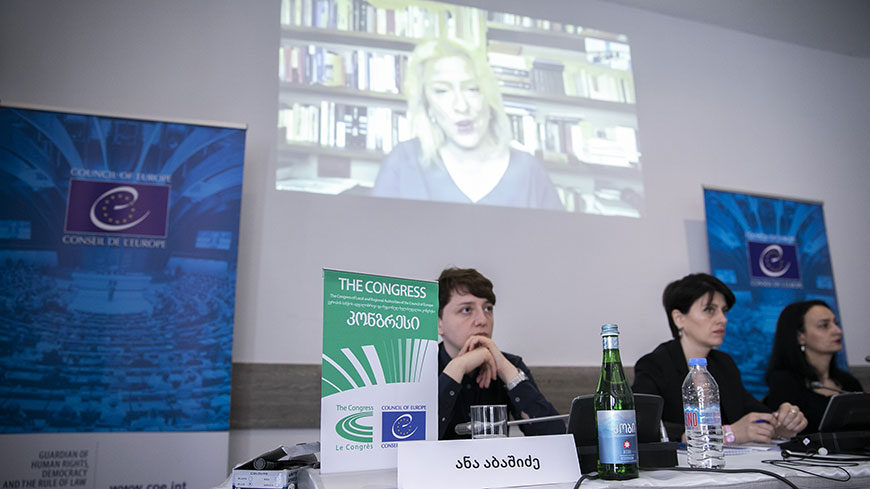“Gender equality is a prerequisite condition for modern democracies, because ultimately, women’s rights are human rights,” stressed Congress Spokesperson on Gender Equality Eirini Dourou (Greece, SOC/G/PD) during the workshop on “Gender equality for effective human rights-based local governance”, held on 4-5 April 2022 in Imereti Region of Georgia, and which was followed by a similar workshop on 11-12 April 2022 in Kakheti Region.
These workshops, organised by the Congress of Local and Regional Authorities in collaboration with the National Association of Local Authorities of Georgia (NALAG), brought together thirteen selected municipalities to address challenges for mainstreaming gender equality in local policies and actions. Together with representatives of municipalities from the United Kingdom and Spain, participants discussed good practices in implementing the European Charter for Equality of Women and Men in local life and shared experiences.
The workshops provided a practical overview of how addressing gender equality at local level is essential for human rights and good governance. As a result, a network of peer support was established to assist local municipalities in delivering actions on gender equality, discuss challenges and achievements, and develop inclusive Gender Equality Action Plans.
“We know that effective, inclusive, human-rights based governance necessarily mainstreams gender equality at all levels, as it fights discrimination and gender-based violence, and strives to eliminate sexism,“ concluded Ms Dourou, encouraging the participants to take further steps in developing relevant legislation and practice for gender equality.
This event was organised in the framework of the project “Strengthening Participatory Democracy and Human Rights at Local Level in Georgia”, implemented by the Congress of Local and Regional Authorities and the Directorate General of Democracy, Division of Elections and Participatory Democracy, within the Council of Europe Action Plan for Georgia 2020-2023 with the financial contribution of the Austrian Development Cooperation. The project aims to strengthen institutional frameworks for citizen participation, support local authorities and their national association in their efforts to protect and promote human rights and ensure that civil society organisations have real impact on local decision making.




